I have grown culinary herbs longer than I have kept chickens and with the addition of chickens to my backyard, it was natural to cut sprigs of herbs to tuck into the chicken coop bedding, hang from the ceiling and toss into nest boxes to freshen things up. If aromatherapy for my chickens is the only benefit to placing herbs in my nesting boxes and coops, I’m fine with that, however, aromatherapy may not be the end of the herbal story.
An article by Herbalist Susan Burek, published in the June/July2011 suggests that many herbs are effective insecticidals. Burek explains that various varieties of herbs can repel or kill insects. An important point she makes throughout the article is that in order to be effective, different herbs must be employed differently: ingested by the birds, distributed throughout the coop, grown around the coop, prepared as an extract and applied to the bird’s body, and/or prepared as a liniment and applied to the coop itself.
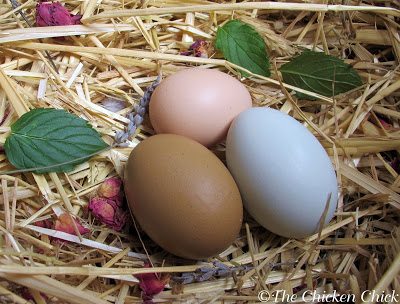
Another important message in Burek’s article is that herbal pest management should be part of “[a] multi-faceted prevention plan.” Keeping coops clean, keeping chickens healthy in order to be able to fend off pests, and avoiding toxic chemicals as well as natural products such as food grade diatomaceous earth, which upset the natural environmental balance, are all integral parts of that plan.


When my White Orpington hen, (Marilyn) began egg-laying, she made a habit of laying the eggs in my lavender and lemon balm plants. Perhaps she found them soothing to be in and around, perhaps she knows something I still don’t about her chosen locations, but what we do know is that there are aromatic benefits from the essential oils in herbs that affect the mood and stress levels of both people and animals.

Another nest of eggs were found in the lavender in the front of my house. Whatever the reason for Marilyn’s nest choices, they validate my practice of sprucing up the coop with aromatic herbs.

In selecting the herbs for my herbal fusion, I consulted with Master Gardener and longtime herbalist Susan Burek of Raising Chicken Naturally on Facebook and Moonlight Mile Herb Farm in Michigan and Master Gardener/herbalist, Kathie Jones in Forest Hill, MD to ensure their safe use around my chickens. While this mixture is not intended to be eaten, my flock may eat bits of it and it’s important to me to know that all of these herbs are safe if ingested.
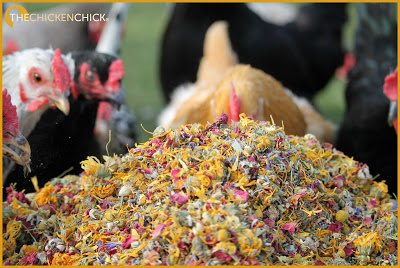

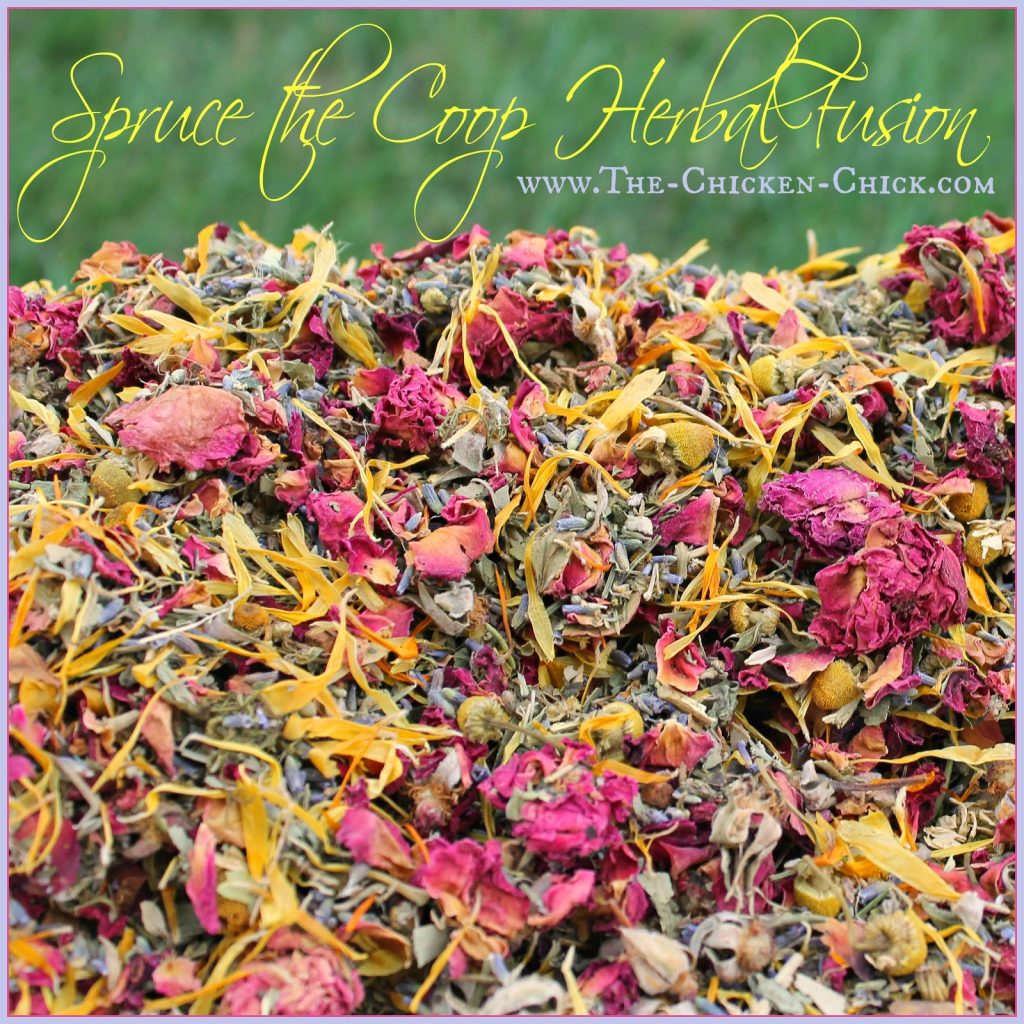
I chose the herbs for my chicken coop nest box fusion, based upon their safety, aromatic properties and/or reputation for offending some insects. “Through an insect’s acute sense of smell, these strong smelling herbs make it overwhelmingly unpleasant for many insects and so then work as a repellent.”1
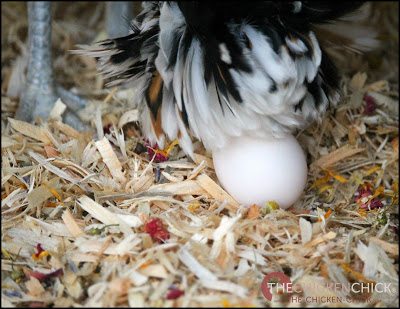
Spruce the Coop Herbal Fusion is now available at select retail locations including some Tractor Supply Stores, and on Amazon!
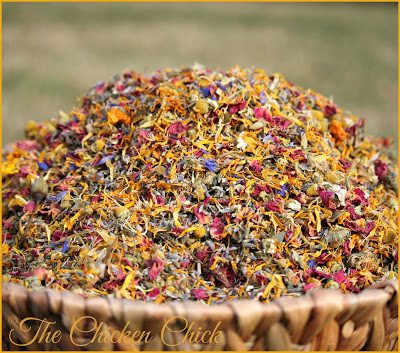
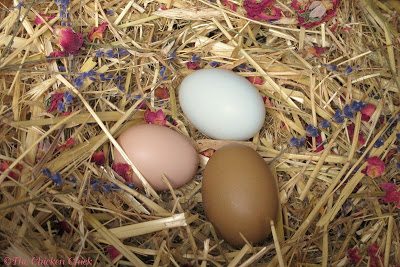
I do not recommend the use of fresh herbs in nest boxes because the humidity and warmth of the hen’s body can cause a hastening of decomposition and encourage the growth of mold, endangering respiratory and digestive health. In researching the use of herbs in poultry flocks, I read blogs and other online articles essentially claiming that herbs in and around the coop are a parasite eliminator and general health panacea. Some of the same buzz words I found from page to page are: anti-bacterial, insecticide, anti-parasitic, natural wormer, stress reliever, sedative, antioxidant, anti-inflammatory, rodent-repellent, laying stimulant and calming. Whew! Really? Don’t believe a word of it! While there is no doubt that many culinary herbs have some “beneficial properties,” the preparation, application and concentration of the herb are critical pieces of information notably missing in these sweeping generalizations, which make them useless.
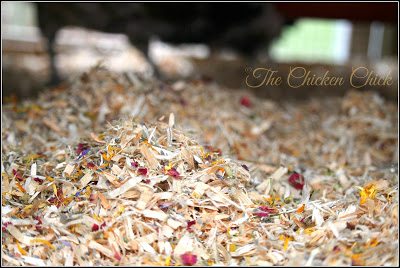
Caution must be exercised when reading claims of beneficial properties when there are no directions for how those benefits can be elicited from certain herbs. In other words: the Herb Fairy cannot sprinkle mint leaves in the nest boxes and expect them to produce all of the beneficial effects listed in the buzz words above-she must at least leave a note detailing the proper preparations and applications of the herbs if they are to work their magic in our coops and in/on our chickens. For more information about using herbs as insecticides in various preparations and for general poultry health, do your own research or visit Herbalist Susan Burek at her website or Facebook page, Raising Chickens Naturally.
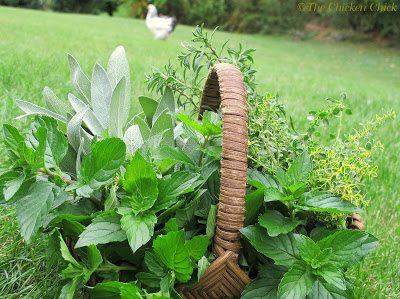
Notes, sources & further reading:
NOTE: On the subject of diatomaceous earth, Burek states: “Even though DE is not contributing to adding toxic chemicals to our environment, it can still be killing beneficial bugs as much as any chemical pesticide would. As good stewards of the environment, it makes more sense to me to make our poultry’s living space an inhospitable place for harmful bugs to choose to live, and let them duke it out in nature for the proper living balance to be achieved.” A Personal Perspective on using DE, Herbalist Susan Burek
NOTE: I do not recommend the use dried or fresh herbs in brooders with chicks due to the risk of irritating their sensitive respiratory systems.
Herbal Pest Management, Susan Burek, Herbalist BackyardPoultry Magazine June/July 2011
A Personal Perspective on using DE, Herbalist Susan Burek
List of herbs good for pastured animals.
Natural remedies for poultry diseases common in ‘natural’and ‘organic’ flocks
The Dirt on Diatomaceous Earth, Shagbark Farms
Kathy Shea Mormino
Affectionately known internationally as The Chicken Chick®, Kathy Shea Mormino shares a fun-loving, informative style to raising backyard chickens. …Read on


shop my SPONSORS
I have grown culinary herbs longer than I have kept chickens and with the addition of chickens to my backyard, it was natural to cut sprigs of herbs to tuck into the chicken coop bedding, hang from the ceiling and toss into nest boxes to freshen things up. If aromatherapy for my chickens is the only benefit to placing herbs in my nesting boxes and coops, I’m fine with that, however, aromatherapy may not be the end of the herbal story.
An article by Herbalist Susan Burek, published in the June/July2011 suggests that many herbs are effective insecticidals. Burek explains that various varieties of herbs can repel or kill insects. An important point she makes throughout the article is that in order to be effective, different herbs must be employed differently: ingested by the birds, distributed throughout the coop, grown around the coop, prepared as an extract and applied to the bird’s body, and/or prepared as a liniment and applied to the coop itself.

Another important message in Burek’s article is that herbal pest management should be part of “[a] multi-faceted prevention plan.” Keeping coops clean, keeping chickens healthy in order to be able to fend off pests, and avoiding toxic chemicals as well as natural products such as food grade diatomaceous earth, which upset the natural environmental balance, are all integral parts of that plan.


When my White Orpington hen, (Marilyn) began egg-laying, she made a habit of laying the eggs in my lavender and lemon balm plants. Perhaps she found them soothing to be in and around, perhaps she knows something I still don’t about her chosen locations, but what we do know is that there are aromatic benefits from the essential oils in herbs that affect the mood and stress levels of both people and animals.

Another nest of eggs were found in the lavender in the front of my house. Whatever the reason for Marilyn’s nest choices, they validate my practice of sprucing up the coop with aromatic herbs.

In selecting the herbs for my herbal fusion, I consulted with Master Gardener and longtime herbalist Susan Burek of Raising Chicken Naturally on Facebook and Moonlight Mile Herb Farm in Michigan and Master Gardener/herbalist, Kathie Jones in Forest Hill, MD to ensure their safe use around my chickens. While this mixture is not intended to be eaten, my flock may eat bits of it and it’s important to me to know that all of these herbs are safe if ingested.



I chose the herbs for my chicken coop nest box fusion, based upon their safety, aromatic properties and/or reputation for offending some insects. “Through an insect’s acute sense of smell, these strong smelling herbs make it overwhelmingly unpleasant for many insects and so then work as a repellent.”1

Spruce the Coop Herbal Fusion is now available at select retail locations including some Tractor Supply Stores, and on Amazon!


I do not recommend the use of fresh herbs in nest boxes because the humidity and warmth of the hen’s body can cause a hastening of decomposition and encourage the growth of mold, endangering respiratory and digestive health. In researching the use of herbs in poultry flocks, I read blogs and other online articles essentially claiming that herbs in and around the coop are a parasite eliminator and general health panacea. Some of the same buzz words I found from page to page are: anti-bacterial, insecticide, anti-parasitic, natural wormer, stress reliever, sedative, antioxidant, anti-inflammatory, rodent-repellent, laying stimulant and calming. Whew! Really? Don’t believe a word of it! While there is no doubt that many culinary herbs have some “beneficial properties,” the preparation, application and concentration of the herb are critical pieces of information notably missing in these sweeping generalizations, which make them useless.

Caution must be exercised when reading claims of beneficial properties when there are no directions for how those benefits can be elicited from certain herbs. In other words: the Herb Fairy cannot sprinkle mint leaves in the nest boxes and expect them to produce all of the beneficial effects listed in the buzz words above-she must at least leave a note detailing the proper preparations and applications of the herbs if they are to work their magic in our coops and in/on our chickens. For more information about using herbs as insecticides in various preparations and for general poultry health, do your own research or visit Herbalist Susan Burek at her website or Facebook page, Raising Chickens Naturally.

Notes, sources & further reading:
NOTE: On the subject of diatomaceous earth, Burek states: “Even though DE is not contributing to adding toxic chemicals to our environment, it can still be killing beneficial bugs as much as any chemical pesticide would. As good stewards of the environment, it makes more sense to me to make our poultry’s living space an inhospitable place for harmful bugs to choose to live, and let them duke it out in nature for the proper living balance to be achieved.” A Personal Perspective on using DE, Herbalist Susan Burek
NOTE: I do not recommend the use dried or fresh herbs in brooders with chicks due to the risk of irritating their sensitive respiratory systems.
Herbal Pest Management, Susan Burek, Herbalist BackyardPoultry Magazine June/July 2011
A Personal Perspective on using DE, Herbalist Susan Burek
List of herbs good for pastured animals.
Natural remedies for poultry diseases common in ‘natural’and ‘organic’ flocks
The Dirt on Diatomaceous Earth, Shagbark Farms















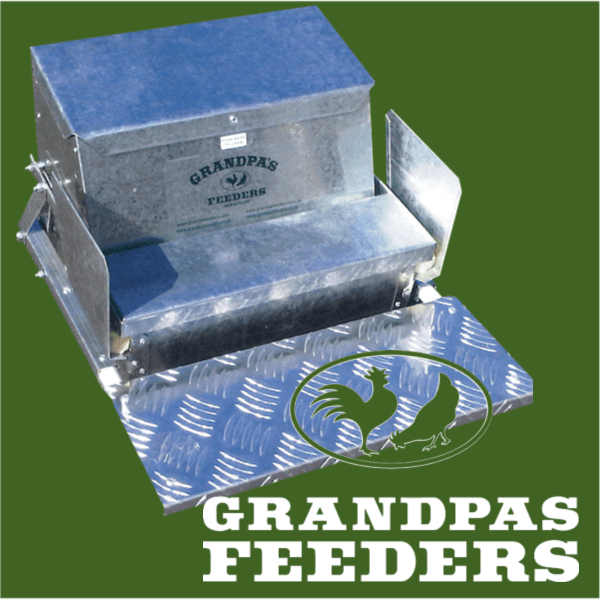








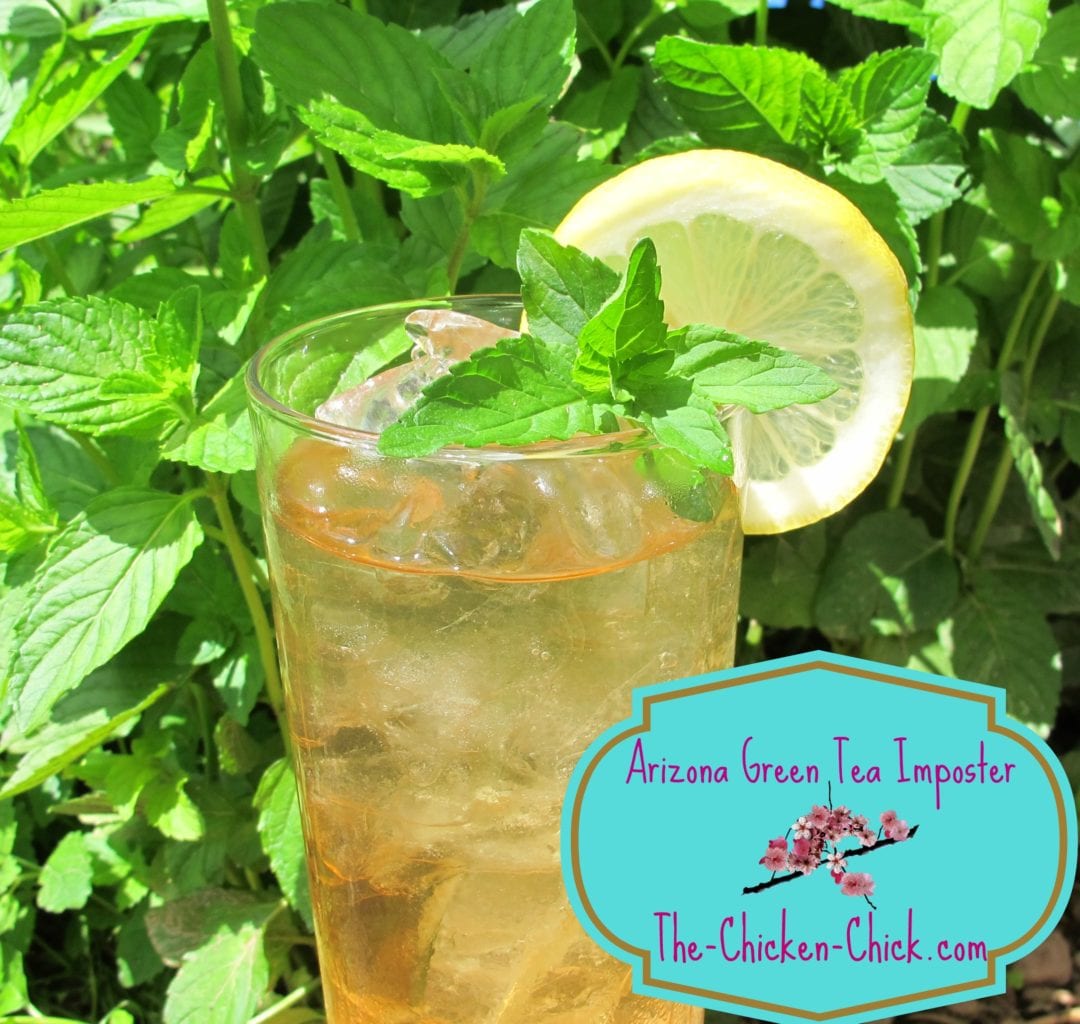
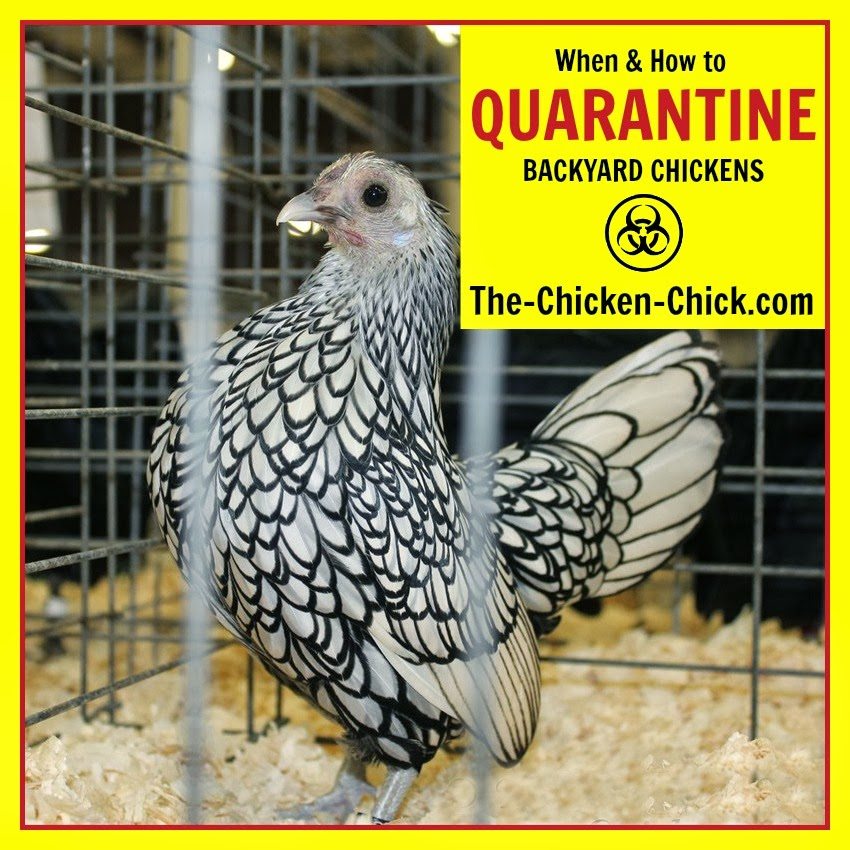













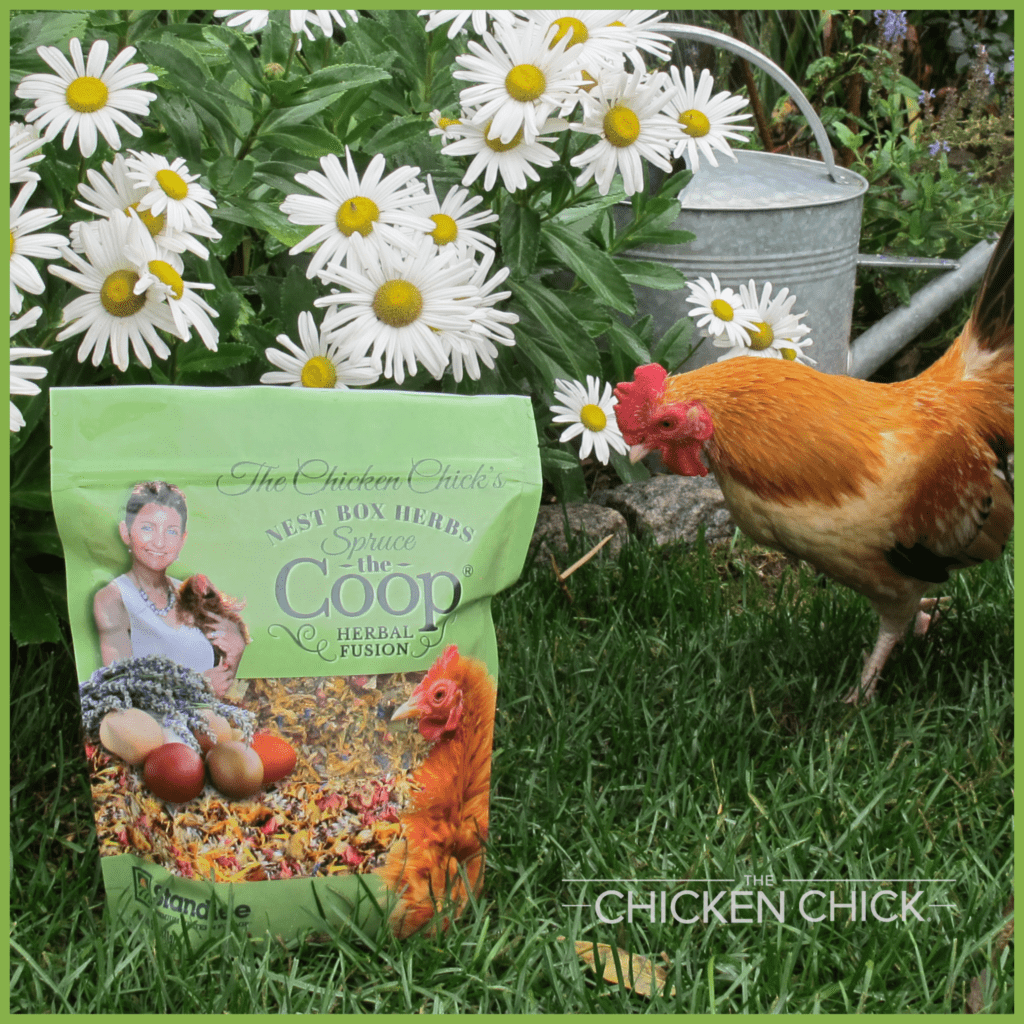

I love everything I learn from your blog. Will definitely try this! Thanks!
I love your emails and blogs and facebook page!
Herbal pest control is awesome. Thank you for the chance to win some.
Donna L. Creamer
very cool and informative
Love this blog! Hope to win to give away! That would make it even better :)
WoW, this smells good !! LOL